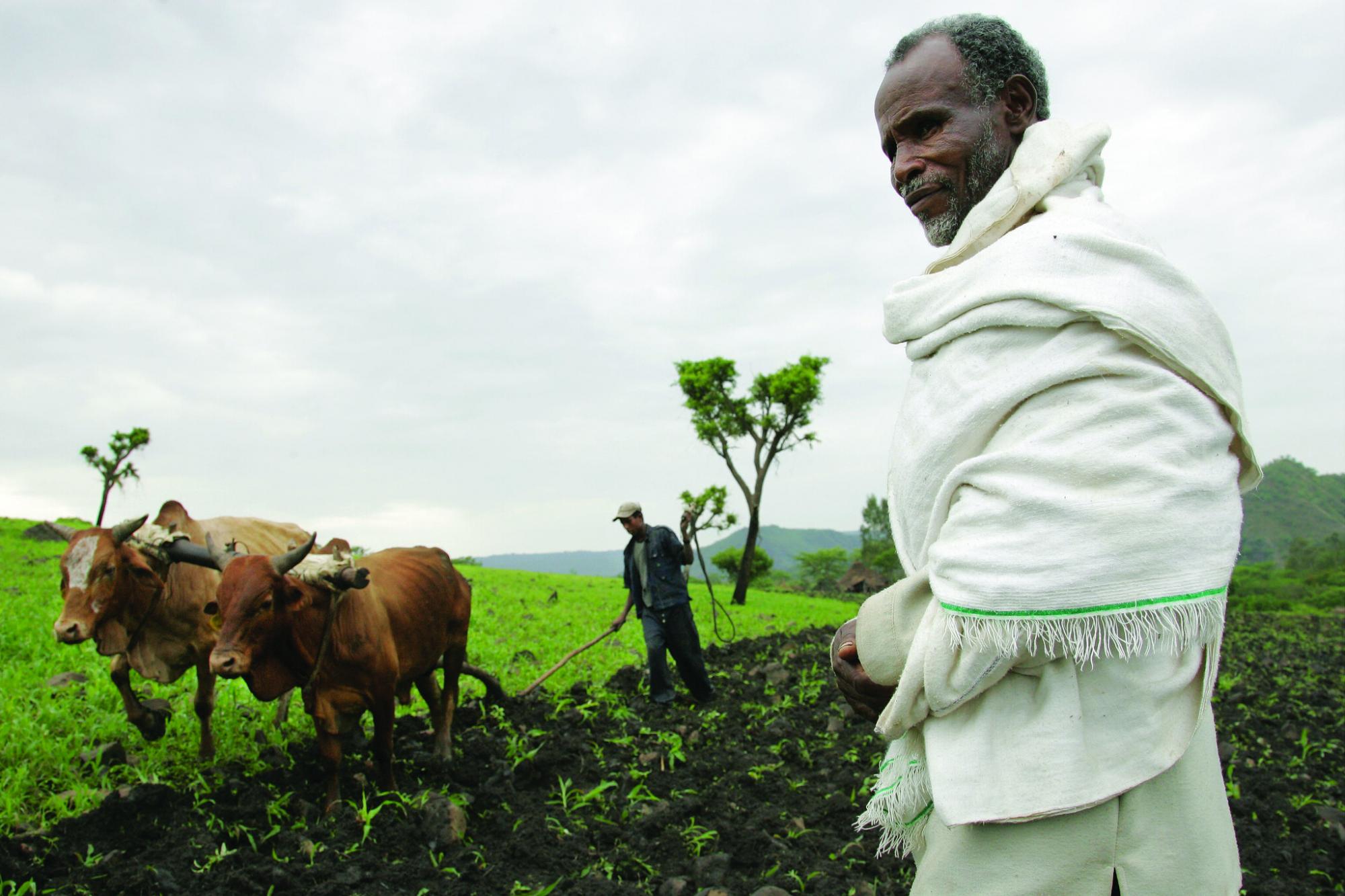
A farmer-driven agenda to advance climate action and food security through cooperation and innovation – 6 Dec
Core message
Event Summary
Farmers and livestock producers are at the forefront of experiencing climate change's impacts. They face growing challenges such as floods, droughts, and a rise in pests and diseases, which threaten crops and livestock. In response, many are innovatively adapting by blending their traditional knowledge with new technologies to safeguard their livelihoods and contributions to food systems.
Despite their crucial role in food systems, however, farmers often find themselves excluded from critical discussions on research, agricultural planning, land use, resource allocation and policy development. Their valuable insights and innovations frequently go unrecognized and underutilized.
To address this gap, the International Livestock Research Institute (ILRI) joined forces with the World Farmer's Organization (WFO) and other partners to convene an official side event on 6 December at COP28 to discuss the importance of bringing farmers into discussions and decisions that impact them directly. The session underscored the need for farmers' active participation in research and policymaking processes. It highlighted the importance of partnerships between farmers, researchers, the private sector and government entities. Such collaborations are vital for integrating best agricultural practices, local know-how, technological advances and supportive policies.
Furthermore, incorporating farmers' insights into climate programs, including Nationally Determined Contributions (NDCs) and National Adaptation Plans (NAPs), is crucial for governments to fulfill global climate and environmental commitments. This bottom-up strategy, grounded in cooperation and innovation, aligns farm profitability with food security goals.
Farmer-driven initiatives are instrumental in shaping policy and fostering sustainable food systems, demonstrating the power of including those most affected by climate change in the search for solutions.
Key Takeaways
- The session underscored a longstanding gap: farmers' needs and insights have been insufficiently incorporated into high-level policy dialogues, research, and program designs. Panelists and hosting organizations advocated for a significant shift towards including farmers more actively in research, policy formation, and program planning processes.
- It's crucial for investors and funders to view farmers as viable and equal partners, rather than mere beneficiaries. This perspective change is essential, considering that farmers contribute to over 80% of the global food value, highlighting their important role in the food supply chain.
- Farmer involvement in decision-making and the targeting and design of development programs is critical. To effectively mitigate emissions and adapt to climate change, innovations, technologies, policies, and programs must incorporate farmers' inputs. This ensures the solutions are contextually relevant, practical, and readily adoptable by the farming community.
What panelists had to say
‘When it comes to centering farmers in discussions and decisions, especially regarding resource allocation, our (farmers) voices are often missing. We need to be brought to the table as equal partners, not merely as beneficiaries of handouts. A greater balance of power across value chains is essential, as it allows us to engage on equal footing.’ – Elizabeth Nsimadala, President, Eastern African Farmers’ Federation (EAFF) and Word Food Organization (Africa) Board Member
--
‘Farmers, big and small, need to be part of any discussion on food systems transformation. They are all trying hard to adapt to climate change, with the primary difference being their access to resources. Now more than ever, agriculture should be viewed as a key part of the solution to the climate challenge. We have the potential to reduce emissions, restore soils, sustain livestock, and cultivate sustainable crops.’– Lloyd Day, Deputy Director General, Inter-American Institute for Cooperation on Agriculture (IICA)
--
‘Farmers should be taken seriously in their roles as innovators and technology producers, as well as their capacities as trainers of other farmers.’ – Felix Sum, Farmer and Climate Adaptation Pioneer from Nandi County, Kenya
--
'During the negotiation in the informal session, there was no farmer organization that was given an opportunity to speak,' noted Bernard Kimoro, Head of Climate Change and Livestock Sustainability at the Kenya Ministry of Agriculture and Livestock Development. He added, 'We need policies that are farmer-friendly, and these policies must be informed by the needs of the farmers.'
--
Zhou Jiading, Program Director at the Shan Shui Conservation Center in the People's Republic of China, emphasized the balance between innovation and tradition in agriculture: 'While we develop high-tech industrial innovations, it's equally important to integrate local farmer knowledge and ensure the diversity of plant and livestock species.'
--
‘In Australia, everyone agrees on the need for action against climate change among researchers, farmers and government officials. However, the challenge lies in the evidence base for prioritizing actions and validating proven practices; here, the evidence is often weak. The greatest constraint is the underinvestment in research. Farmers are accustomed to making decisions based on solid evidence, and they require scientific backing to confidently make significant, long-term investments in their farms. It's important to understand that a practice proven effective in one part of the country may not necessarily be successful elsewhere.’ – Sue Ogilvy, Farming for the Future Program Director
Looking Forward
‘If there’s one message we can take away when we go back to our respective countries is to keep the farmer in mind, and how we can better integrate their voice.’ - Sophie Beecher, Director General, Sustainable Development Policy Directorate, Agriculture and Agri-Food Canada
Watch the recordings (note: the incomplete coverage of the event is due to technology hiccups that disrupted the livestream and recording process):
- https://www.youtube.com/watch?v=jM5JjHrxSOI
- https://www.youtube.com/watch?v=CLa6eCo5yGA